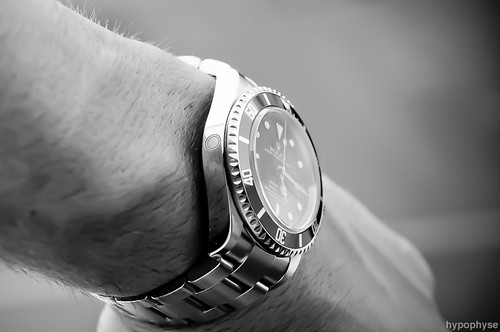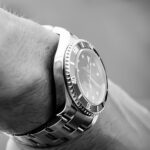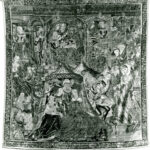Hans Wilsdorf (22 March 1881 – 6 July 1960) was a German entrepreneur renowned for founding two iconic watch brands, Rolex and Tudor. His forward-thinking approach to marketing and his dedication to quality and innovation have left an indelible mark on the watchmaking industry.
Early Life and Education
Hans Wilsdorf was born in Kulmbach, Germany, to Anna and Johan Daniel Ferdinand Wilsdorf. He was the second of three children. Tragedy struck early in his life as he lost his mother when he was a young boy, and his father passed away when he was only twelve. Wilsdorf’s guardianship was assumed by his uncles, who sold the family’s prosperous iron tools business. Despite these challenges, Wilsdorf’s uncles ensured he received a remarkable education at top-tier boarding schools, fostering his academic excellence in mathematics and languages.
Wilsdorf’s educational background and early exposure to the business world shaped his future endeavors. His ability to adapt and excel, as well as his interest in foreign cultures, set the stage for his remarkable contributions to the watch industry.
Entry into Watchmaking
Hans Wilsdorf embarked on his horological journey by joining an international pearl exporting company, where he gained insights into business operations and international trade. In 1900, he shifted his focus to Swiss watchmaking by moving to La Chaux-de-Fonds, where he worked as an English correspondent and clerk for Messrs. Cuno Korten. This experience allowed him to grasp the intricacies of watch production and refinement.
During his tenure at Cuno Korten, Wilsdorf’s responsibilities ranged from winding pocket watches to ensuring their accuracy. This immersive experience provided him with invaluable knowledge about watchmaking techniques and production processes.
Founding Wilsdorf & Davis
In 1903, Wilsdorf relocated to London and, in 1905, co-founded Wilsdorf & Davis with Alfred Davis. Situated at 83 Hatton Garden, London, their goal was to offer high-quality timepieces at accessible prices. This venture laid the groundwork for Wilsdorf’s enduring legacy in the watch industry, highlighting his understanding of consumer preferences and his commitment to delivering quality craftsmanship.
The Birth of Rolex
Wilsdorf’s vision extended beyond affordability; he saw the potential of wristwatches and their convenience. In 1908, he established the Rolex brand, driven by his passion for promoting wristwatches over the prevailing pocket watches. His fascination with precision led him to collaborate with Hermann Aegler in 1905, resulting in an order for wristlet watches—a pivotal moment in Rolex’s history.
Innovations and Expansion
The subsequent decades witnessed Rolex’s rise to prominence under Wilsdorf’s leadership. He secured patents for the Rolex Oyster, the world’s first waterproof watch, in 1927. This innovation transformed watch design and reinforced Rolex’s reputation for technological advancements.
Wilsdorf’s pursuit of excellence continued with the introduction of the Rolex Perpetual in 1931, featuring an automatic movement powered by the wearer’s motion. The brand’s commitment to quality was recognized during World War II when Royal Air Force pilots chose Rolex watches over standard-issue ones.
Legacy and Contributions
Hans Wilsdorf’s legacy extends beyond watchmaking. In 1945, he established the Hans Wilsdorf Foundation, which continues to own and control Rolex. This foundation supports charitable causes and reflects Wilsdorf’s commitment to giving back to society.
Throughout his career, Wilsdorf’s marketing prowess and dedication to innovation propelled Rolex to global recognition. His contributions include the creation of iconic timepieces like the Submariner, GMT-Master, and Day-Date.
Passing and Enduring Impact
Hans Wilsdorf passed away in Geneva in 1960, leaving behind a legacy that has shaped the watch industry to this day. Rolex’s reputation for precision, luxury, and innovation remains a testament to his visionary leadership. The Hans Wilsdorf Foundation continues to steer the brand and contributes to charitable endeavors, solidifying his commitment to positive change.
Hans Wilsdorf’s journey from a young boy in Germany to a pioneering figure in the world of watches is a testament to his resilience, ingenuity, and determination. His impact on horology and business strategy resonates through the continued success of Rolex and the enduring legacy of the Hans Wilsdorf Foundation.
Sources
History and Timeline of Rolex Founder – Hans Wilsdorf | Bob’s Watches (bobswatches.com)







